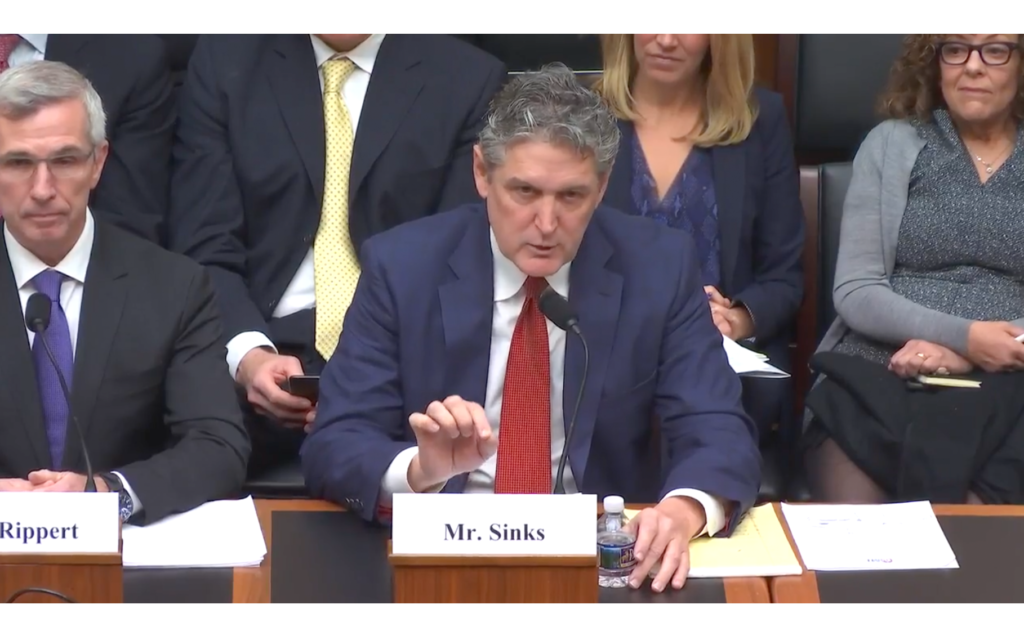WASHINGTON — Lindsey Johnson, President of U.S. Mortgage Insurers (USMI), today published the following blog on USMI.org in response to today’s U.S. House Financial Services Committee hearing entitled “A Failure to Act: How a Decade Without GSE Reform Has Once Again Put Taxpayers at Risk”:
“Today’s hearing on the GSE’s (Fannie Mae and Freddie Mac) 10 years in government conservatorship—after U.S. taxpayers provided a $187 billion bailout during the financial crisis—serves as an important reminder that the housing finance system still needs serious reform. While Fannie and Freddie are healthier today thanks to a prolonged period of favorable economic and housing conditions, and new safeguards that have improved the stability of the overall mortgage finance system, we must work to ensure the system is put on a stable footing for the long term. Policymakers should consider reaffirming boundaries for the GSEs in the secondary mortgage markets, reducing their duopolistic market power to level the playing field for competitive private capital opportunities, and increasing transparency in the GSEs’ operations so that all participants in the housing finance system have the clarity they need to foster and support a healthy and accessible mortgage market.
“Since the GSEs were placed into conservatorship, their footprint, market dominance, and reach into the mortgage finance system has expanded. USMI continues to be concerned with the GSEs’ mission creep and the lack of transparency in certain GSE expanded activities. For example, the financing of mortgage servicing rights for a select group of non-bank lenders; new credit enhancement mechanisms, like Freddie Mac’s IMAGIN and Fannie Mae’s EPMI pilot programs, that seek to disintermediate private capital; and participating in single-family rental pilot programs, among others. Many of these new products and activities raise alarms about the GSEs’ expanding roles in the housing finance system without a clear rational or need as they represent a significant blurring of the bright line separation between primary market and secondary market activities, as well as greater vertical integration of private sector activities into the GSEs.
“The Federal Housing Finance Agency recently announced it is ending the GSEs’ single-family rental pilot programs, which it said it was doing on a ‘test and learn basis,’ citing that it has since learned the market can function without the GSEs. FHFA needs to end other GSE pilots and programs that encroach on private market functions, including the IMAGIN and EPMI products introduced earlier this year.
“There is a robust and healthy private mortgage insurance market that is meeting the market’s needs and it is unnecessary for the GSEs to compete directly with the private sector. The GSEs should not be allowed to create programs that crowd out a time-tested, robustly regulated, and highly capitalized industry that facilitates prudent access to low down payment mortgage financing across the country and on a permanent basis through various economic cycles.
“To achieve comprehensive reform, USMI believes certain principles must be met that will guarantee a robust housing finance system that promotes successful and affordable homeownership. These principles include establishing a coordinated housing policy that promotes private capital ahead of taxpayer exposure, enabling access to homeownership and affordable mortgage credit with private mortgage insurance, and deepening the level of mortgage insurance currently used with conventional low down payment loans. It is long overdue that we strike the right balance for taxpayers in establishing complementary roles for the Federal Housing Administration and the conventional low down payment mortgage market, which is predominately guaranteed by private mortgage insurance.
“Since 1957, mortgage insurers have supported the U.S. housing market, enabling homeownership opportunities for nearly 30 million Americans by providing insurance on mortgage loans where borrowers cannot afford a 20 percent down payment. USMI will continue to work with Congress and the administration to create a more coordinated, consistent, and transparent housing system—a system that can expand private capital’s role in shouldering more risk in front of taxpayers.”
On September 5, USMI joined 28 other organizations on a letter to Congress and the Administration calling for GSE reform.




 In a statement, USMI President and Executive Director Lindsey Johnson
In a statement, USMI President and Executive Director Lindsey Johnson 




